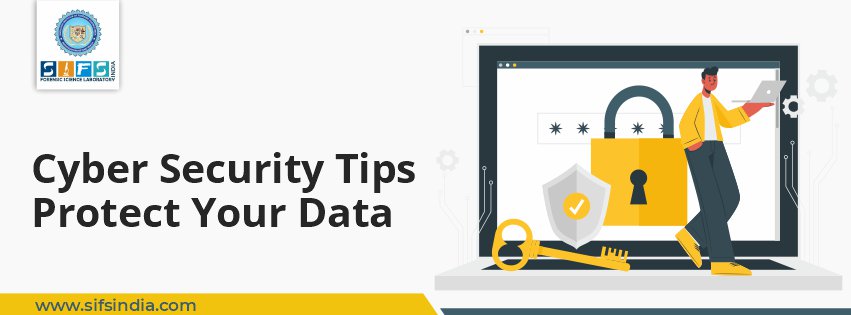There are various cyber threats today that can harm you. However with a little bit of awareness you can protect yourself.
Internet security software is an important part of cyber security; though, it can’t defend you from every single threat out there.
Internet security software, coupled with a knowledge will go a long way on the threat scenery.
Personal Cyber Security Tips
Here are a few tips to secure your computer’s security, which are as follows: -
Keep Updating: An unpatched or outdated machine is bound to have software vulnerabilities that can be exploited to oppress a system’s security. Keep the automatic updates enabled so that you do not miss out on critical security patches for operating systems (OS).
Employ Defensive Measures: Installing protective software which has the ability to detect viruses, trojan and spy wares, etc., and is also efficient in protecting the data over the network and able to identify and stop incoming attacks is a must.
Choose Strong Passwords: Choose a strong password to protect your system. For a strong password use a combination of numbers, special characteristics, and letters and create an uncommon password for each and every account.
Keep a Backup as a Contingency: There is no full-proof defence ever made in the cyber security domain. More often when data is lost to some extent due to various cyber-attacks and only then a patch to rectify this vulnerability is released. In order to avoid such a scenario do keep a backup of your critical data in at least two or three offline external storage devices or backup them on secure cloud storage service provided by various IT giants.
Keep Your Guards Against Unauthorized Access: Technical or online access is not only the way to get access to your system as physical access is also one of the ways by which someone can get access to your system or other storage devices easily. Never leave your PC in a dangerous place, public region, particularly if when you're logged on any account.
Keep a Sense of E-mail and The Internet Usage: Nowadays, there are malicious websites and E-mail scams going around the globe, and individuals who are curious to explore these ventures are the most vulnerable and desired victims of attacks through these E-mails and malicious websites.
Encrypted Network Channels: When connected to the internet, especially WiFi, always employs VPN or other network proxies so as to prevent any data sniffing activity.
Personal and Sensitive Data Protection: Nowadays multimedia or smartphones are with everyone and often contain the sensitive data of the user like personal photographs and banking data, which has become the most common target for attackers.
Use Desktop Firewall: Mac and Windows PCs utilize essential desktop firewalls to defend your PC files from being scanned. Ensure that they are appropriately configured.
Stay Informed: Remain up-to-date with the recent improvements such as IS&T on Facebook and Twitter.
Every piece of evidence contains a hidden truth. From meticulous crime scene analysis to cutting-edge digital forensics, our expert team is dedicated to decode mystery within every clue. Discover how our specialized forensic expertise can support your investigation.
Call on +91-11- 47074263 or WhatsApp +919953546546
Forensic Services by SIFS India

 April 04, 2021 - BY SIFS India
April 04, 2021 - BY SIFS India